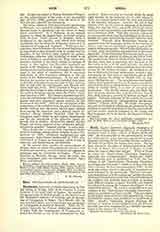

Knoll, ALBERT (JOSEPH), dogmatic theologian of the Order of Friars Minor Capuchins, b. at Bruneck in northern Tyrol, July 12, 1796; d. at Bozen, March 30, 1863. He was ordained to the priesthood in November, 1818, and five years later was appointed to teach dogmatic theology in the Capuchin convent at Meran. He held this position for twenty-four years. Having been elected to the office of definitor general in 1847, he went to Rome, but returned to Bozen, in 1853, when his term of office had expired. While at Rome he wrote his “Institutiones Theologise Dogmaticae Generalis seu Fundamentalis” (Innsbruck, 1852). The following year he published at Turin the first volume of his “Institutiones Theologise Theoretieai seu Dogmatico-Polemicae”, which was followed by five other volumes, the last one appearing in 1859. In this work the author observes the order of treatment usually followed by the textbooks. His brief but accurate descriptions of both ancient and modern heresies, his frequent and happy quotations from the writings of the Fathers, the masterly way in which he handles such difficult subjects as grace, free-will, and original sin, place him among the foremost theologians of the nineteenth century. He wrote a compendium in two volumes of the “Institutiones Theologise Theoretic se” which was published at Turin in 1868. The last edition of the larger work, corrected and amended by Father Gottfried of Graun, was published at Innsbruck in 1893. Knoll’s “Expositio Regulae Fratrum Minorum”, a treatise on the obligations of the Francis-can rule, has been commended as a faithful interpretation of the spirit of St. Francis.
STEPHEN M. DONOVAN

